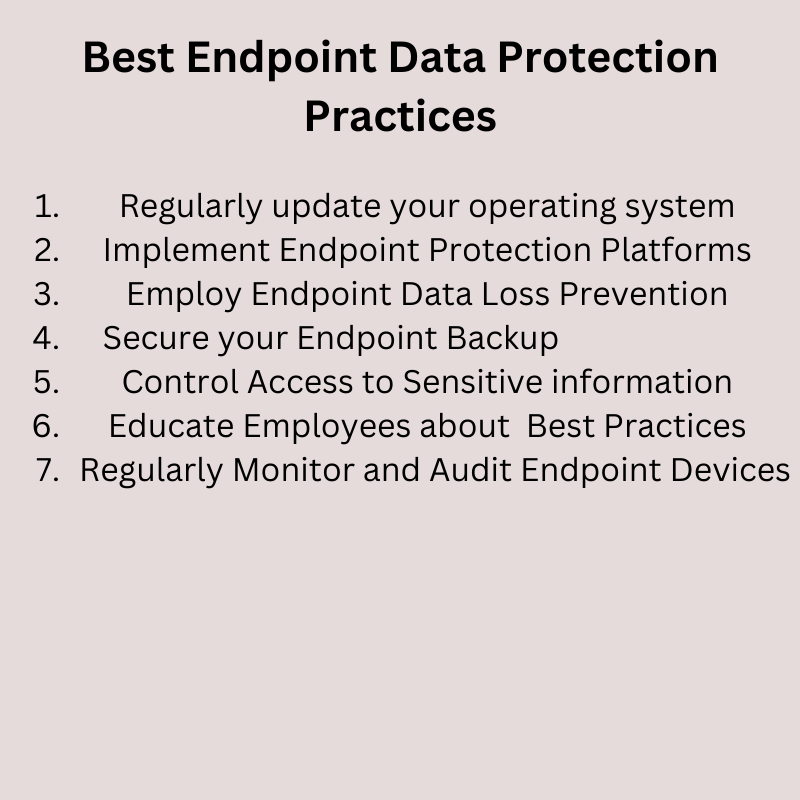
In today’s digital age, data security has become a paramount concern for businesses of all sizes. For small business managers, understanding the significance of data security is crucial. Not only does it protect sensitive information, but it also ensures the longevity and reputation of the business. This article delves into the essentials of data security and why it’s vital for small businesses.
Introduction to Data Security for Small Businesses
Data security is the practice of protecting digital information from unauthorized access, corruption, or theft. For small businesses, this means safeguarding customer data, financial records, and other sensitive information from potential threats.
The rising importance of data security in today’s digital age
With the increasing reliance on digital platforms, the risk of data breaches and cyberattacks has grown. Small businesses, often perceived as easy targets, need to be especially vigilant.
Why every small business manager should prioritize data security
Data breaches can lead to financial losses, reputational damage, and legal consequences. Ensuring data security is not just about protecting information but also about preserving the business’s integrity.
Understanding the Key Terms in Data Security
To grasp the importance of data security, it’s essential to understand some key terms.
What is a data breach and its implications?
A data breach occurs when unauthorized individuals access sensitive information. This can lead to financial losses, customer distrust, and legal repercussions.
How a data breach occurs and its aftermath
Data breaches can result from various factors, each posing unique challenges and consequences for businesses. Understanding these causes is the first step in fortifying defenses.
- Weak Passwords: Weak or commonly used passwords are a primary entry point for cybercriminals. Compromised credentials were responsible for 81% of breaches in 2020. It’s essential to enforce strong password policies and educate employees about the risks of using easily guessable passwords.
- Outdated Software: Software vulnerabilities can be exploited by hackers if patches aren’t applied promptly. Such vulnerabilities provide an open door for unauthorized access, leading to potential data theft. Regular software updates and monitoring for vulnerabilities are crucial.
- Social Engineering Tactics: Social engineering, including phishing and spear phishing, manipulates individuals into revealing confidential information. Cybercriminals craft convincing emails, often exploiting current trends or using personalized information. They do this in order to deceive recipients into providing sensitive data or clicking malicious links. Training staff to recognize and report suspicious communications is key to mitigating this threat.
In the aftermath of a breach, businesses may face serious problems. These include financial penalties and reputational damage. It can also harm the business, creating the daunting task of restoring trust among customers and stakeholders. Proactive measures and continuous education are vital in preventing such incidents and ensuring the security of sensitive information.
The menace of ransomware attacks
Ransomware attacks involve hackers encrypting data and demanding a ransom for its release. Such attacks can cripple a business, leading to significant financial and operational challenges.
Information security vs. data security: What’s the difference?
Both data security and information security are often used interchangeably. Information security encompasses broader aspects, including physical security and administrative controls. Data security, on the other hand, focuses solely on protecting data from unauthorized access.
Personal data and personally identifiable information (PII): Why they matter
Personal data refers to any information relating to an individual. PII, a subset of personal data, includes details like Social Security numbers or bank account details. Protecting this information is crucial to prevent identity theft and unauthorized transactions.
Why Data Security is Crucial for Your Business
Protecting sensitive information from unauthorized access
Unauthorized access to sensitive information can lead to financial losses and damage to the company’s reputation. Implementing robust data encryption methods can help safeguard this data.
The role of data encryption in safeguarding data
Data encryption converts data into a code to prevent unauthorized access. It’s a crucial tool for ensuring that even if data is accessed, it remains unreadable without the correct decryption key.
The reputational damage following a security breach
A security breach can tarnish a company’s reputation, leading to a loss of customer trust and potential business. Maintaining robust data security practices can help prevent such incidents.
The financial implications of data breaches and ransomware attacks
First, there is the immediate financial losses from a breach or ransomware attack. Second, businesses may face legal penalties and the cost of damage control.
Key Features of Effective Data Security
The different types of data security measures
Data security encompasses various measures, from encryption to firewalls. Understanding these can help businesses implement a comprehensive security strategy.
Data resiliency and its importance
Data resiliency ensures that data remains accessible even during system failures. It involves creating backups and implementing recovery procedures.
The concept of data masking and its role in securing data
Data masking involves disguising original data to protect sensitive information while maintaining its authenticity. It’s useful for testing and development purposes.
The significance of regular data backup
Regular backups ensure that data can be recovered in case of system failures or cyberattacks. It’s a critical component of a comprehensive data security strategy.
Social engineering: A silent threat to sensitive data
Social engineering tactics, like phishing, trick individuals into revealing sensitive information. Training staff to recognize such threats can prevent potential breaches.
Regulatory Implications of Data Security
General Data Protection Regulation (GDPR): What small businesses need to know
GDPR mandates businesses to protect personal data and uphold the privacy rights of individuals. Non-compliance can lead to hefty fines.
The importance of securing customer data under regulatory frameworks
Regulations like GDPR emphasize the need to secure customer data. Failing to do so can lead to legal repercussions and damage to the company’s reputation.
Conclusion: Making Data Security a Priority
Steps to ensure data security in your business
- Regular Training: Educate staff about potential threats and how to recognize them [6].
- Implement Robust Security Measures: Use encryption, firewalls, and regular backups to safeguard data.
- Stay Updated: Regularly update software and systems to protect against vulnerabilities.
The long-term benefits of investing in data security for small businesses
Investing in data security not only protects sensitive information but also ensures the business’s longevity and reputation. In the digital age, it’s not just a choice but a necessity.

Experienced cybersecurity analyst, software engineer, patent attorney, worked with Linux, Windows, AWS, lots of security tools. Hope to help people do the right things and do the things right!


